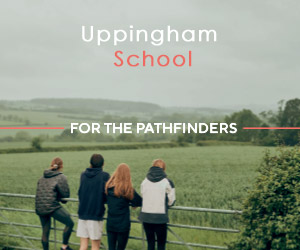
Blind and partially sighted students ‘locked out of post-16 education,’ says report
25.11.22One visually impaired student described how ‘many young people have lost faith in the education system’
Blind and visually impaired young people are being ‘locked out’ of college due to a ‘fragmented and unreliable system of support’ for those leaving secondary education, according to the Thomas Pocklington Trust.
The charity’s Give me access to college report highlights the barriers that some young people are facing when they leave school and progress to mainstream or sixth form college.
The report shows how often ‘support either drops-off or vanishes’ when a young person leaves secondary school, despite local authorities (LAs) having a statutory responsibility to provide specialist educational need and disability support to all children and young people up to the age of 25.
While 61% of LAs offer statutory services to blind and partially sighted students in sixth form colleges, the number drops to 44% for mainstream colleges.
A mainstream college is defined as one that largely meets the requirement of those without special educational needs, rather than, for example, a special school. It may offer more vocational training than that provided at a sixth form college.
A quarter (24%) of LAs provide different post-16 provision depending on whether someone studies in a mainstream or a sixth form college, the charity said.
A quarter of mainstream colleges must buy their support from LAs, compared to 10% of sixth form colleges.
A fifth (20%) of LAs that charge for their services supported no blind of partially sighted students in 2021–2022, suggesting a very low take-up of their paid-for offer.
One LA explained that it does “not support students in a mainstream college. They access their own support, such as from charities.”
“I feel as though I have been nothing but a problem to them”
Ramneek Ahluwalia, who is visually impaired, explained how the lack of appropriate support negatively impacted her time at college.
“Most of my resources and materials were given to me in paper copies, which 90% of the time didn’t meet my access arrangements,” she said. “I had never used assistive technology until at university.”
She believes that, “more emphasis must be put on training blind and partially sighted students to use assistive technology, especially from a young age,” adding: “It has taken me a lot of resilience, determination and perseverance to reach where I am today. There have been days where I have considered saying enough is enough. I know many young people have lost faith in the education system to adequately support them.”
Student Alice Gresswell, who is blind, said: “I just feel as though I was never wanted at college in the first place. As the only totally blind student, it just felt too much trouble for them. I feel as though I have been nothing but a problem to them. I now dread going to college and if I want to go on further with my education it has totally put me off.”
Tara Chattaway, head of education at Thomas Pocklington Trust, explained that the charity is calling on the Government, as part of its Special Educational Needs and Disabilities (SEND) review, to ensure adequate, ringfenced funding to deliver statutory services to blind and partially sighted students in all post-16 education settings.
She emphasised that the Curriculum Framework for Children and Young People with Vision Impairment should be embedded into the proposed National Standards or updated Code of Practice, “so that parents and blind and partially sighted children and young people know what they should expect.”
The Thomas Pocklington Trust is also calling on LAs to review their provision for blind and partially sighted young people in post-16 education to ensure that a service is in place, and to review their eligibility criteria and policies to ensure that Education and Health Care Plans are not required to access sensory impairment services.
Chattaway said: “Urgent action is needed. Blind and partially sighted young people must leave compulsory education with the skills and knowledge they need to use mainstream and assistive technology.”
The charity’s Give me access to college report can be viewed online.
www.pocklington-trust.org.uk/student-support/policy-and-campaigning/give-me-access-to-college/
COPYRIGHT © Abode2 2012-2024












